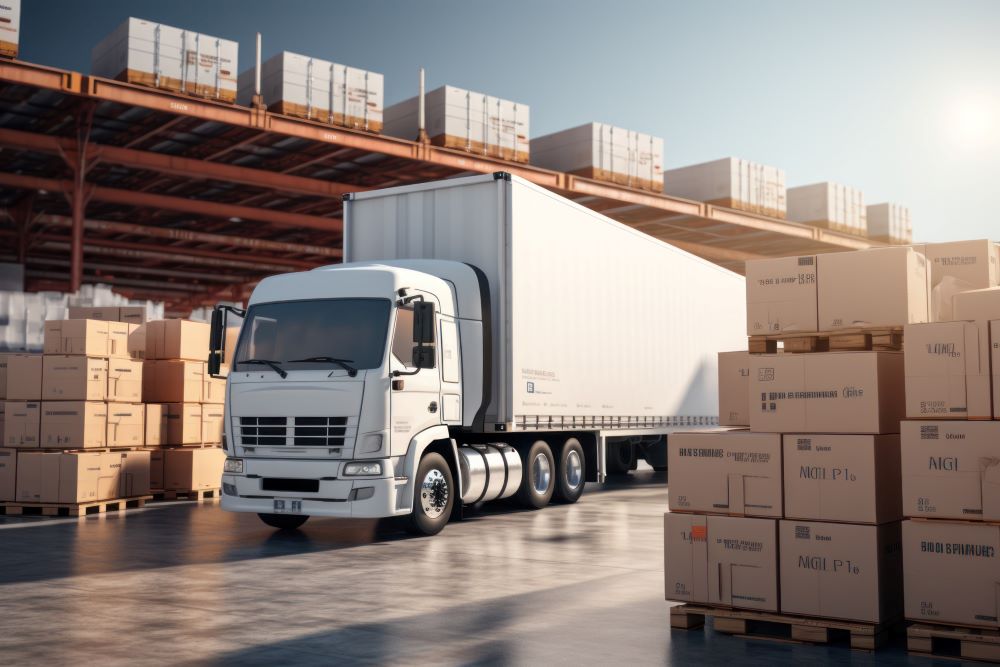The right commercial truck cargo insurance policy is essential for many truck drivers. These policies ensure any cargo you carry is covered in the event of an accident or theft – something that could otherwise cost trucking companies a great deal.
When searching for commercial truck cargo insurance, finding coverage that adequately protects your business and cargo is crucial. With so many different commercial truck insurance brokers out there, finding the best solution can be tricky.
To help you out, here are some of the top considerations to make when looking for commercial truck cargo insurance.
Coverage Types
Motor truck cargo insurance can include various types of coverage and policies. Each insurance provider will have their coverage options. The one you choose depends on what kind of trucking business you operate and how extensive your truck cargo coverage needs to be.
There are two main coverage options for motor truck cargo insurance. These are:
- Basic Cargo Coverage: Where your truck’s cargo is covered for the most common scenarios. Ensure the policy covers cargo loss or damage during transit. This is the core component of cargo insurance. These policies are the most affordable.
- Additional Coverages: This gives you greater cargo coverage to help you stay protected in a broader range of scenarios. Look for options like theft, fire, vandalism, and spoilage coverage, depending on the nature of your cargo.
Look for options like theft, fire, vandalism, and spoilage coverage, depending on the nature of your cargo.
The best commercial truck insurance carriers should offer flexible coverage options to help you find a policy that perfectly aligns with your trucking business.
Coverage Limits
Motor truck cargo insurance can have some very strict coverage limits.
The greater your insurance premiums are, the more your coverage limit will be. Ultimately, the coverage limit you choose should make sense for the type of cargo you’re carrying, the nature of your trucking business, and how risky your routes are.
When looking into this, determine the maximum coverage amount per shipment. It should be sufficient to cover the total value of your cargo. Getting this right will help you choose an insurance company that offers adequate cargo coverage.
Verify if there are sub-limits for specific types of cargo, such as hazardous materials. This could impact how much coverage you have available.
Deductibles
Motor carriers need a clear idea of how deductibles work in their insurance policies, which is significant in how premiums are structured.
Understand the deductible amount you’ll be responsible for in case of a claim. Higher deductibles often mean lower premiums. This is usually something you can negotiate with your insurance agent.
Consider your financial capacity to handle deductibles when choosing a policy.
Premium Costs
Of course, a significant factor when choosing motor truck cargo insurance is the cost of the premiums.
Compare premiums from multiple insurers to find a competitive rate. Be cautious of excessively low premiums, which may indicate insufficient coverage or hidden costs. Always understand what your premiums cover and how the pricing has been calculated.
Cargo Types
Not all cargo insurance plans cover the same cargo. So, ensure the insurance policy covers the specific types of cargo you transport. Some policies may exclude certain goods.
If you carry specialized or high-value cargo, verify that it’s adequately covered. The cargo coverage should also align with the type of trucking business you operate. For example, for-hire truckers, passenger vans, freight forwarders, auto haulers, and box trucks may all require different cargo insurance options.
Geographic Coverage
If your trucking business operates across different states and countries, you’ll need to make sure your cargo insurance always offers enough coverage.
Confirm that the insurance policy covers your trucks’ regions and routes. The last thing you want is damaged cargo in an area that your insurance provider doesn’t cover.
Carrier Liability
Understand how the cargo insurance complements your carrier liability coverage. Cargo insurance often covers more than carrier liability alone.
Always determine how the two policies interact in case of a claim.
Claim Process
An essential part of choosing motor truck cargo insurance is understanding the claims process.
Familiarize yourself with the claims process, including reporting requirements, documentation, and timeframes. Choose an insurer with a reputation for efficient and fair claims processing.
Reputation and Financial Stability
Always research the insurer’s reputation and financial stability through customer reviews and ratings. A financially stable insurer is more likely to fulfill its obligations in case of a claim.
Bad reviews could signal motor carriers to avoid the insurance company.
Policy Exclusions and Conditions
Carefully read and understand the policy’s exclusions and conditions to avoid surprises during a claim. You might need to extend coverage options if the policy does not offer enough.
Seek clarification from the insurer on any ambiguous terms or clauses. If you aren’t fully aware of what the policy covers, then it’s not a good idea to sign into the insurance policy.
Customization Options
It’s always best to look for insurers that offer customizable policies to tailor coverage to your specific needs. Flexibility can help you adapt your coverage as your business grows or changes.
There’s a good chance your cargo coverage requirements will change over time. Truck drivers may suddenly start hauling high-value freight, which could require a policy change. Working with a flexible insurance provider will help you stay adequately covered.
Conclusion
Before finalizing your choice, consult with insurance professionals or brokers specializing in commercial truck cargo insurance. They can help you navigate the complexities of insurance policies and ensure you get the coverage that best suits your business’s needs. Take your time to find the right policy, as this is a crucial step in setting up your trucking business.
If you’re purchasing a new semi-truck, you’ll need to find the best possible deal for truck financing. Get in touch with us at Mission Financial, where we can help you secure funding for your ideal truck – even if you have a bad credit history.






